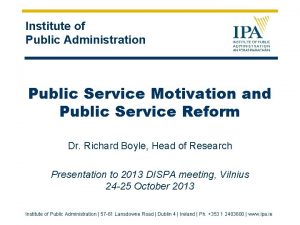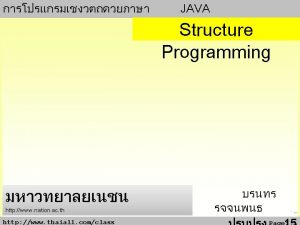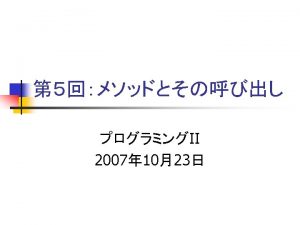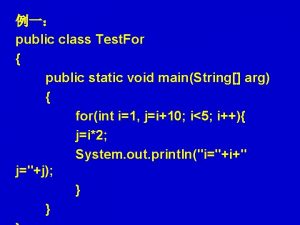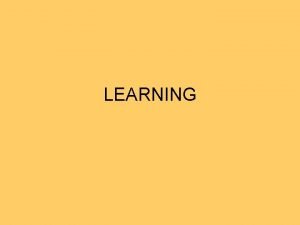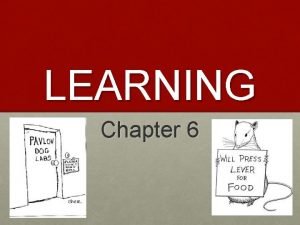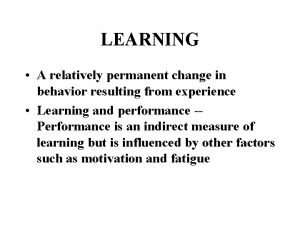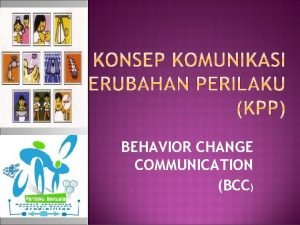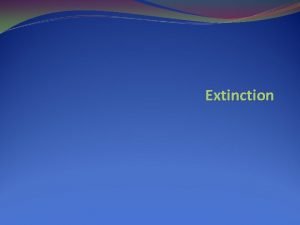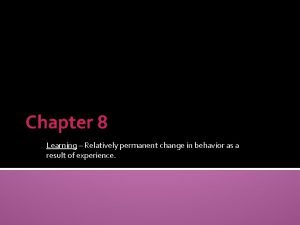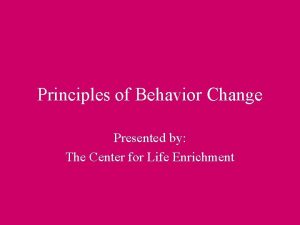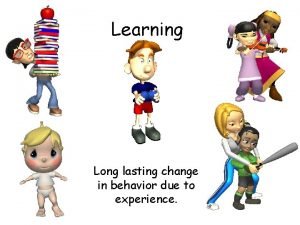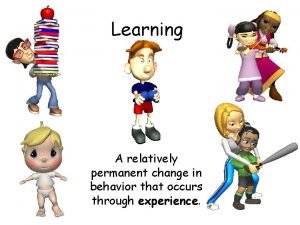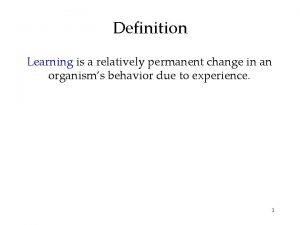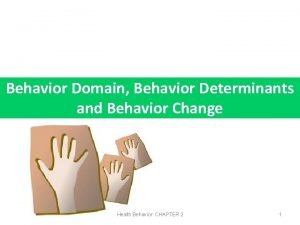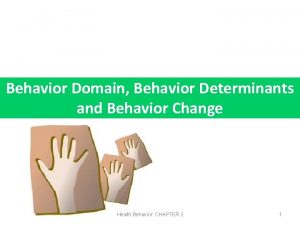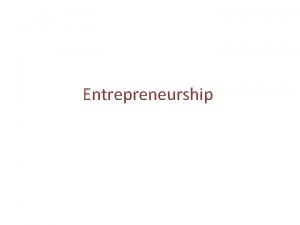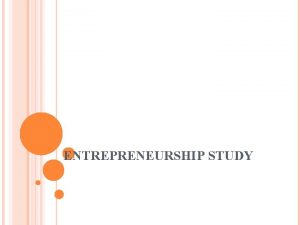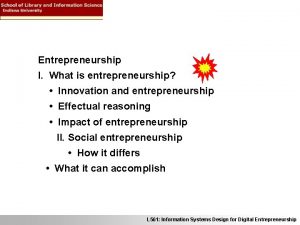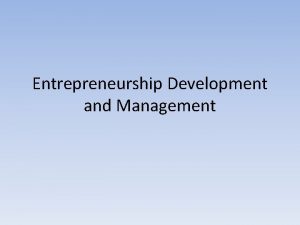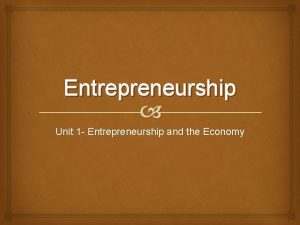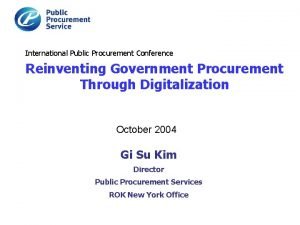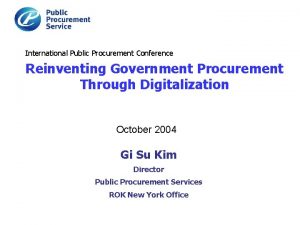Reinventing Behavior Change through Public Health Entrepreneurship Scott

Reinventing Behavior Change through Public Health Entrepreneurship Scott Frank, MD, MS Director, Division of Public Health Department of Epidemiology and Biostatistics Department of Family Medicine Kristina Knight, MPH Director of Community Initiatives Master of Public Health Program Gayle Effron, MPH Candidate Master of Public Health Program

pub lic health en tre pre neur n. , 1. change agent of population health: pioneer of innovations that benefit the wellbeing of humanity

Who Will Keep The Public Healthy? Educating Public Health Professionals for the 21 st Century. Institute of Medicine— 2003 Now • Epidemiology • Biostatistics • Environmental Health • Health Service Admin • Social & Behavioral Sciences Future • Today plus… • Ecological model • Informatics • Genomics • Communications • Cultural Competence • Community-based participatory research • Global Health • Policy & Law • Public Health Ethics

The Future of Public Health Institute of Medicine— 1988 “…the need for leaders is too great to leave their emergence to chance. ” “Greater emphasis in public health curricula should be placed on managerial and leadership skills…”
![The Future of Public Health Institute of Medicine— 1988 “[A leader’s] skills encompass a The Future of Public Health Institute of Medicine— 1988 “[A leader’s] skills encompass a](http://slidetodoc.com/presentation_image/1085258fa7f10045a698808a733e4bbf/image-5.jpg)
The Future of Public Health Institute of Medicine— 1988 “[A leader’s] skills encompass a wide-range of necessary characteristics”: ü Technical competence in substance of public health issues ü Managerial abilities ü Communication skills ü Knowledge, skills in public decision-making process ü Ability to marshall constituencies for effective action

What is Entrepreneurship? • Entrepreneurship is "the process of looking at things in such a way that possible solutions to problems and perceived needs may evolve in venturing. " • In French it means, “someone who undertakes”

What is Entrepreneurship? • An entrepreneur is a person who undertakes and operates a new enterprise or venture, and assumes some accountability for the inherent risks. • The entrepreneur always searches for change, responds to it, and exploits it as an opportunity

What is Entrepreneurship? • Need to shift resources from approaches that have produced low value into areas of higher productivity and yield. Jean Baptiste Say • Entrepreneurs create value.

What is Entrepreneurship? • The innovators who drive the “creative-destructive” process of capitalism • “Reform or revolutionize the pattern of production” • They can do this by: – exploiting an invention, or – an untried technological possibility for producing a new commodity or producing an old one in a new way – by opening up a new source of supply of materials or a new outlet for products, – by reorganizing an industry » Joseph Schumpeter

Aspects of Entrepreneurs • • • Entrepreneur as a risk bearer Entrepreneur as an organizer Entrepreneur as an innovator Entrepreneur as a problem solver Entrepreneur as a person willing to engage in uncertainty • Entrepreneur as a leader

Public Health Entrepreneurship The opportunistic creation and implementation of catalytic innovations intended to offer sustained improvement in the health of populations in the face of need; without being limited by the resources currently in hand; involving collaboration with and accountability to the constituency served and the outcomes created. Scott Frank, Tom Conlon May 2005

Public Health Entrepreneurship The opportunistic creation and implementation of catalytic innovations intended to offer sustained improvement in the health of populations in the face of need; without being limited by the resources currently in hand; involving collaboration with and accountability to the constituency served and the outcomes created. Scott Frank, Tom Conlon May 2005

pub lic health en tre pre neur n. , 1. change agent of population health: pioneer of innovations that benefit the wellbeing of humanity

Thesis: Public health is inherently anti-entrepreneurial 1. 2. 3. 4. 5. 6. 7. 8. 9. 10. 11. 12.

Thesis: Public health is inherently anti-entrepreneurial 1. No profit motive 2. Governmental – stuck in the box 3. Slow moving relative to corp. world 4. ”Products” are harder to sell 5. We really care 6. And yet, at the same time, we really don’t (lack of accountability) 7. Stifled by funding restraints – best practice paradox 8. Brain drain? – Under trained work force, both in numbers and specialties 9. Hard to target an audience when we have no specific target audience 10. We don’t really know how we’re doing 11. People see us as one of the powers that be. Aka the Health Police 12. Our focus is need and not just needs that will pay

Thesis: Public health offers inherent opportunities for entrepreneurship 1. 2. 3. 4. 5. 6. 7. 8. 9. 10. 11. 12.

Thesis: Public health offers inherent opportunities for entrepreneurship 1. There is cash to be had 2. They may not know it, but everybody needs us, and the market is wiiiiide open 3. We are selling some fabulous things: decreased expenses, increased happy times 4. Small bites = big change 5. Passion abounds 6. The market is more receptive. The time to innovate is now!! 7. Timing is good for public health and medicine to play nice again 8. People love tragic stories. And we got plenty. (Visibility is up. ) 9. There is an inherent need for innovation because we have failed with things in the past. So something has to change! 10. Play on people’s fears!!! >: ) 11. We have a measurement system (improved health, etc. ). So let’s use it. 12. The nature of public health is responsive.

Social Entrepreneur • Identifies and applies practical solutions to social problems by combining innovation, resourcefulness and opportunity • Innovates by finding a new product, a new service, or a new approach to a social problem • Focuses first and foremost on social value creation and in that spirit, is willing to share openly the innovations and insights of the initiative with a view to its wider replication • Resists being trapped by the constraints of ideology or discipline • Continuously refines and adapts approach in response to feedback • Has a vision, but also a well-thought out roadmap as to how to attain the goal

Social Entrepreneurship “Entrepreneurs have always been the drivers of progress. In the business world, they act as engines of growth, harnessing opportunity and innovation to fuel economic advancement. Social entrepreneurs, like their business brethren, are similarly focused; they tap into vast reserves of ambition, creativity and resourcefulness in relentless pursuit of hard, measurable results. ” Skoll Foundation

Social Entrepreneurship “But social entrepreneurs seek to grow more than just profits. Motivated by altruism and a profound desire to promote the growth of equitable civil societies, social entrepreneurs pioneer innovative, effective, sustainable approaches to meet the needs of the marginalized, the disadvantaged and the disenfranchised. Social entrepreneurs are the wellspring of a better future. ” Skoll Foundation

Public Health Entrepreneurship • The metric is the mission • Success is measured by: – Improved health outcome (not greater profit) – Change in social environment (dissemination of ideas) – Sustainable programming (no margin, no mission) • No margin, no metric, no mission

Public Health Entrepreneurship • Need to shift resources from approaches that have produced low value into areas of higher productivity and yield. Jean Baptiste Say

Public Health Entrepreneurship • Definitions – Innovation: (from Latin innovare, from novus: new). The act of introducing something new; making changes in anything established – Value: (from French valoir: worth). Relative worth, merit, or importance

Public Health Entrepreneurship • Definitions – Invention: (from Latin invenire: to discover). To originate or create as a product of one's own ingenuity or imagination – Venture: (from Middle English aventure: adventure). An undertaking involving uncertainty, risk, or danger as to the outcome

Public Health Innovation • Replacing low value with high value – Identify low value • Seek solutions that increase value – Identify high value and apply it in a new situation – Identify uncertain value and measure its merit

Public Health Innovation • Low Public Health Value – Failed or insufficiently realized opportunity to make a health impact – Inefficiencies – Ineffectiveness – Outdated

Public Health Innovation • High Public Health Value – Community intervention demonstrated to create sustained change at reasonable cost – Policy – Population intervention – Individual intervention

Public Health Innovation • Uncertain Public Health Value – – Invention New applications of existing technology Value untested Natural experiments

Public Health Innovation Public Health Value Low High Low Entrepreneurship Opportunity Target Ideal High Entrepreneurship Opportunity Non-Sustainable Project Cost

Public Health Innovation • Low Public Health Value

Public Health Innovation • Low Public Health Value – The Medical Encounter – School Health Education – Media • • Advertising Television Music Movies – For Profit Health System

Public Health Innovation • High Public Health Value

Public Health Innovation • High Public Health Value – – – – Clean Indoor Air Policy Occupational Safety Policy Motor Vehicle Safety Policy Immunization (Policy) Clean Water Safe and Healthy Food (Policy) Evidence Based Programs

Public Health Innovation • Uncertain Public Health Value

Public Health Innovation • Uncertain Public Health Value – – Internet School Uniforms Inventions Innovations

Public Health Innovation • Evaluating Value – Decide on your metric • • • Profit Sustainability Health Improvement Enhanced Knowledge Social Impact (consequence that moves us closer to or further away from the conditions of an ideal society and world, the common good as defined by human society) • Social Justice

Public Health Innovation • Public Health Entrepreneurship Projects 1. 2. 3. 4. Primary Care Tobacco Cessation Project Automated Physicians Office Survey System DDx: Game of Medical Mysteries “Everybody Loves a Quitter” Tobacco Cessation Reality Television Program



The Smoker’s Dilemma. The Smoker’s Solution. I don’t want to smoke, but I don’t want to quit. I do want to quit but I do want to smoke. I hate that I smoke, yet love when I smoke. I have no control but must be in control. I know I must quit but know that I can’t. I know I can quit, but fear that I will, and then be left without my cigarettes for the rest of my life. When I light a cigarette, I am really lighting a fuse. The longer it burns, the shorter my time. I have lied and denied, joked and rationalized, compared myself to others to justify my smoking, and pretended that it just doesn’t matter. I have looked for excuses to continue and created situations that allow me to maintain my smoking. Later, my favorite word, later. Comfort when I am down. Reward when I am happy. Consolation when I am wrong. Distraction when I am bored. Filler when I am empty. Company when I am alone. Rebellion when I am restricted. Composure when I am nervous. Attention when I am forgotten. Retribution when I am righteous. Release when I am pressured. The answer when I question. The answer, the answer, no matter the question. Impatience, tense impatience, easy to distract, hard to please, easy to bore, hard to imagine. Why can’t I quit? Truth is, I know the answer. I’m just too busy looking for reasons to continue. I must not quit smoking. Instead I must become officially free from nicotine. I must reject the role of victim and regain control of my own choices. Everything I need is inside of me. I am the answer. Scott Frank, MD, MS

Innovations The Automated Smokers CAGE The Smoker’s Dilemma The Five Step Procedure The Shared Medical Appointment for Tobacco Cessation The Smoker’s Remote Control When = Why Power Smoking Off Ally Tobacco Cessation Meditations CD
- Slides: 41







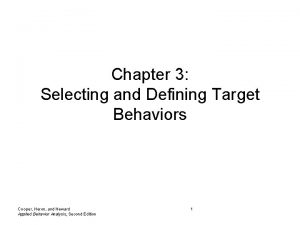
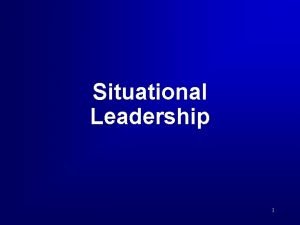
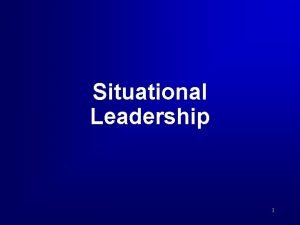



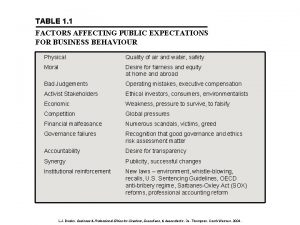




![Static void main(string[] args) Static void main(string[] args)](https://slidetodoc.com/wp-content/uploads/2021/03/4513482_22b36a0b7e38d4d7601c3e728a65831f-300x225.jpg)
